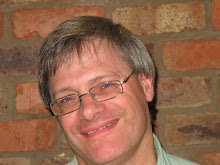Such is the reputation that these evenings have generated in the past that there was a packed audience, so much so that the bar staff asked people to bring their empties to the bar as there was little room for them to move between the tables to collect them.
The choir kicked off the evening singing "Wassail" a mid-winter song celebrating the apple tree in expectation of good cider next year, before moving on to the popular song "Moon River". The choir returned at intervals throughout the evening, but there was rich fare from individual choir members, ensembles or friends of the choir.
Chris Keogh, whose brother Sean sings tenor in the choir, is a talented pianist, and entertained us well, first with a beautiful piece by Ravel, and then a piece of his own composition. We very much enjoyed the fruits of his study at Aberdeen university. Later his brother Sean sat at the keyboard and sang a song of his own composition, and a Christmas song by the Chieftains. A versatile singer, very different style to what we sing in the choir.
Brenda Connor, who sings alto in the choir sang two jazz numbers, which were well received. Also outstanding was the piano accompaniment, by John McHugh, who also accompanied the choir throughout the evening.
Erik Bichard sang a setting of Houseman's poem 'A Shropshire Lad' by Butterworth, and later in the evening he was joined by Denise Owen as they sang a duet from a Mozart opera. Sung in German, and very beautiful.
We were joined by friends from Widnes and Warrington, Chris and Cath, who came with 12 string guitar and Ukulele, and sang numbers in both halves of the evening, including the 1964 song "Where have all the flowers gone" by Pete Seeger.
Liverpool Voice performs some classical repertoire, and "Hodie" by Sweelinck, a sixteenth century composer, showcased some of this. It also introduced the Christmas theme, which was followed up by "Carol of the Bells" before the break brought an opportunity for the audience to refresh their glasses at the bar.
The lighter side of the repertoire resumed after the break with a beautiful setting of "Over the Rainbow" followed by a new one for the choir "Unforgettable"
Toward the end the pre Christmas atmosphere returned with a round "Christmas Eve in the Old Town House" sung by a group comprising choir members and one of their mothers. It is rare to have an evening without something by John Rutter, and his arrangement of Silent Night preceded the final number, which was a Christmas Medley, joined by Chris and Cath, and two choir members playing the flute, and various members of choir and audience playing bells during "Winter Wonderland" "Jingle Bells" and other well known songs. During this John McHugh vacated the keyboard seat to play bass guitar, while Lesley Bentley, musical director and conductor led from the keyboard.
Lesley deserves special mention not only for the high standard of performance achieved by the choir, but also the welcoming atmosphere she creates introducing each performer.
Very often Liverpool Voice finish their evenings with "Keep you in Peace" but this time it was displaced as members of the audience requested a repeat of "Moon River". Very nice too.
Watch out for the next Arts Cafe evening, probably toward the end of March, and try and get to "Joy to the World - An evening of Christmas Songs and Audience Carols" at Mossley Hill Parish Church on Thursday 11th December at 7.30pm.




